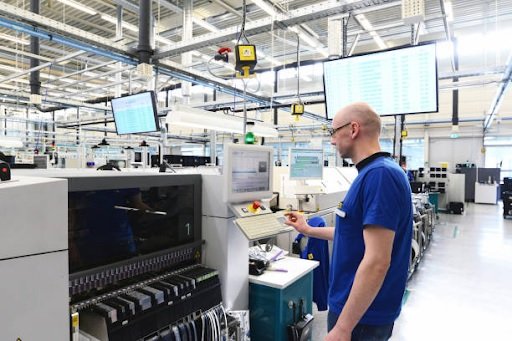In the rapidly evolving landscape of transportation and logistics, telematics hardware manufacturers stand as architects of connectivity, designing and producing the essential components that power the modern fleet management ecosystem. From GPS trackers to onboard sensors, these manufacturers play a pivotal role in enabling businesses to harness the power of data and technology to optimize operations, enhance safety, and drive efficiency. In this article, we’ll delve into the realm of telematics hardware manufacturers, exploring their significance, innovations, and impact on the automotive industry.
Telematics hardware encompasses a wide range of electronic devices and sensors installed in vehicles to monitor and transmit data on various aspects of vehicle performance and driver behaviour. These devices serve as the foundation of telematics systems, enabling businesses to collect real-time data on vehicle location, speed, fuel consumption, engine diagnostics, and more. Telematics hardware manufacturers design, produce, and distribute these devices, ensuring their reliability, accuracy, and compatibility with different vehicles and systems.
One of the primary areas of innovation in telematics hardware is connectivity. As the demand for real-time data and remote monitoring grows, manufacturers are developing hardware solutions with enhanced connectivity capabilities, including 4G/5G cellular networks, satellite communication, and IoT (Internet of Things) integration. These advancements enable telematics devices to transmit data more efficiently, reliably, and securely, even in remote or challenging environments.
Moreover, telematics hardware manufacturers are also focusing on miniaturization and integration, developing compact and lightweight devices that can be easily installed in vehicles without compromising performance or functionality. These smaller form factors reduce installation time and complexity, minimize space requirements, and lower costs for businesses deploying telematics solutions across their fleets.
From GPS trackers and accelerometers to temperature sensors and fuel level sensors, these devices provide valuable insights into vehicle performance, health, and driver behaviour, allowing businesses to identify issues, optimize routes, and improve safety and efficiency.
From autonomous vehicles and smart city initiatives to connected car services and usage-based insurance, telematics hardware has the potential to revolutionize various aspects of transportation and mobility, paving the way for a safer, more efficient, and sustainable future.
Despite the promise and potential of telematics hardware, there are also challenges and considerations that manufacturers must address. One of the main challenges is ensuring compatibility and interoperability with different vehicles, systems, and platforms. With a diverse range of vehicles on the road, ranging from cars and trucks to buses and heavy equipment, manufacturers must develop hardware solutions that can seamlessly integrate with various makes, models, and manufacturers.
Moreover, telematics hardware manufacturers must also prioritize data privacy and security, given the sensitive nature of the data collected by their devices, including location information and vehicle diagnostics. Manufacturers must implement robust encryption, authentication, and access control measures to protect data against unauthorized access, breaches, and cyberattacks.
Telematics hardware manufacturers play a critical role in shaping the future of transportation and logistics, driving innovation, efficiency, and safety in the automotive industry. With their expertise, technologies, and innovations, these manufacturers are empowering businesses to harness the power of data and connectivity to optimize operations, enhance safety, and improve the bottom line. As the demand for telematics solutions continues to grow, manufacturers must remain at the forefront of innovation, developing hardware solutions that address the evolving needs and challenges of the industry, and pave the way for a smarter, more connected future.
